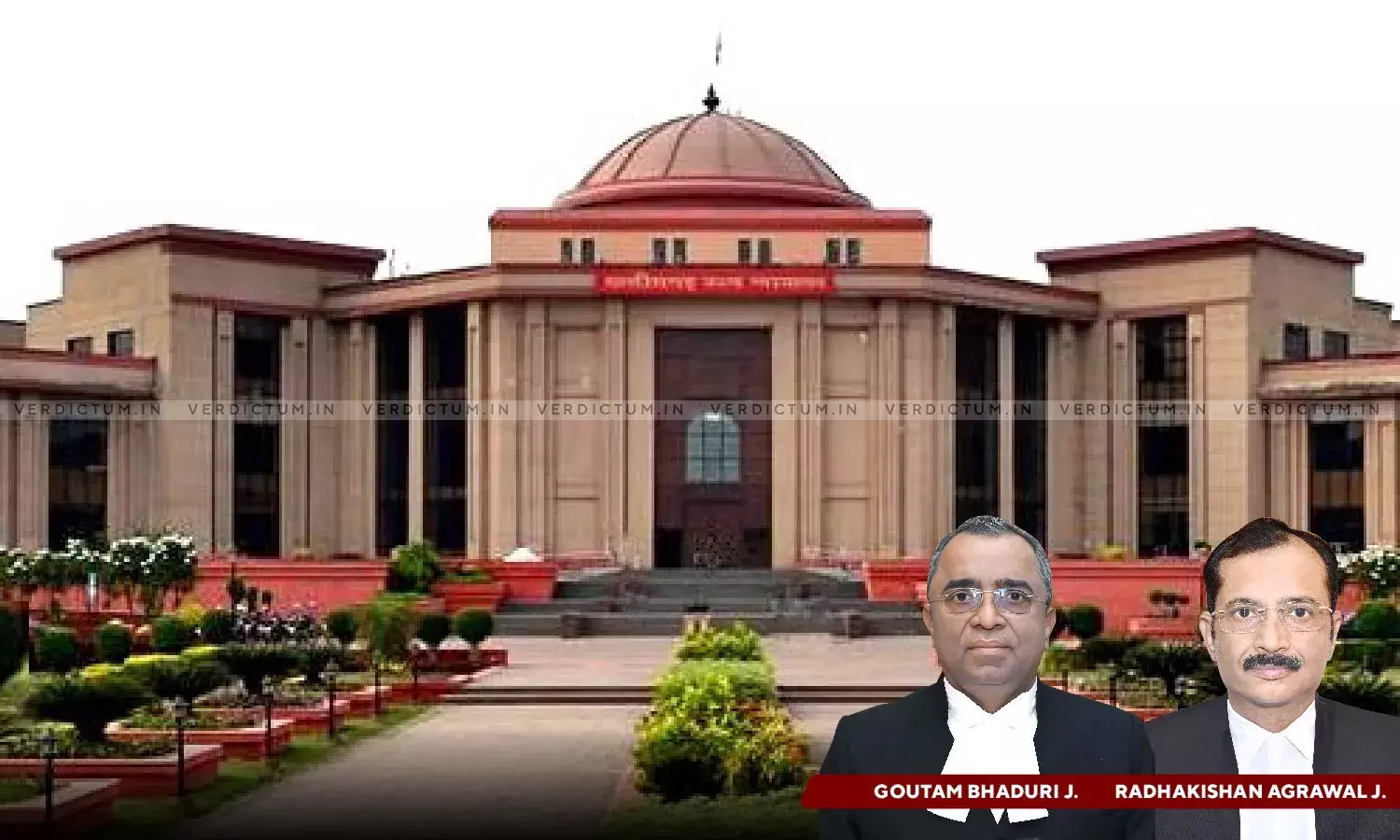Wife Should Not Be Treated As Hired Chattel Or Bonded Labour To Stay Under Conditions Imposed By Husband: Chhattisgarh HC
The Chhattisgarh High Court while denying divorce to a man, remarked that the wife should not be treated as hired chattel or a bonded labour to stay under the conditions imposed by the husband.
The husband had filed an appeal against the judgment of the Family Court by which the suit under Section 13 of the Hindu Marriage Act, 1955 (HMA) for grant of divorce decree was dismissed.
A Division Bench comprising Justice Goutam Bhaduri and Justice Radhakishan Agrawal observed, “It is very natural and rightful demand of the wife from her husband to keep her along with him. The appellant-husband herein, from the very beginning, not accepted any such genuine request of the wife and always used to treat her as a chattel and thought that she is bound to live in such a place where he wants to keep her. It is a well settled that in the matrimonial house, the wife should not be treated as hired chattel or a bonded labour to stay under the conditions imposed by the husband.”
Advocate A.N. Bhakta represented the appellant/husband while Advocate Nishikant Sinha represented the respondent/wife.
Facts of the Case -
The marriage between the parties was solemnized in 2013 and after marriage, the respondent/wife joined the company of the appellant/husband and out of their wedlock, one female child was born. It was alleged by the husband that after marriage, the wife used to visit her maternal home frequently without any information and also refused to stay at the village. He was working as Constable in the Chhattisgarh Armed Force at village and on account of performing his duties, it was not possible for him to look after his parents and old maternal grand-mother (nani). For this reason, the wife would often fight with him and never wanted to stay with him and his family as she often used to go to her maternal home even after birth of child. It was also put forth by the husband that because of behaviour of his wife and looking to his busy in duties, he left his child to his parents’ house where he admitted his child in a school and despite that, the wife took his child without any permission from School Management.
Since the wife often used to go to her maternal home, the husband was unable to give much time to care his old maternal grand-mother (nani). It was alleged that since she was leading an independent life by her free conduct and behaviour, therefore, she was not performing her matrimonial obligations and because of which he and his family members had to face difficulties and inconvenience. It was also alleged that the wife had filed a case against the husband under the Protection of Women from Domestic Violence Act, 2005 (DV Act) before the Chief Judicial Magistrate and further filed a case for maintenance, which act of the wife had hurt the honour and dignity of the husband in the society. In this way, his wife always tried to implicate him in a false case to teach him a lesson and thus he was subjected to mental cruelty by wife and the wife was residing separately for the past 3 years from him and there was no possibility of staying together as he was deserted by her without any sufficient cause.
The High Court in view of the above facts noted, “Perusal of the evidence of appellant-husband would reveal that he used to have quarrels with the respondent-wife with respect to proper care of his family members and whenever the respondent-wife expressed her desire to live in Silphili where he is working, the appellant used to refuse and never took her along with him on one pretext or other.”
The Court further noted that the husband got married with the wife only to serve his family members as maid servant and that he used to suspect her character as his cousin told him that his wife forced him (cousin brother) to maintain physical relations or else threatened him to implicate in false case, but no evidence was produced by him to substantiate this specific allegation.
“In fact, the allegations leveled by him are omnibus and there is no reason for this Court to believe his statement, in absence of any cogent and reliable evidence. On the other hand, from perusal of the evidence of respondent-wife, it appears that she is always ready and willing to live with the appellant-husband despite trivial issues raised by him. It is also evident from her evidence that even in absence of her husband, she never lost the opportunity in properly looking after his family members and in performing her matrimonial obligations carefully despite there being unfavourable circumstances”, it added.
The Court also observed that the husband always used to have engaged in talking with another girl over mobile phone and that because of delivery of female child, the wife has been ousted from her matrimonial home. It added by saying that after marriage, the wife was staying in village for a considerable period, which shows that she was always ready and willing to stay with the husband and never deserted either him or his family members, rather it was the husband who used to pressurize her to serve his family members with proper care.
“Therefore, on overall assessment of the evidence, we are of the opinion that cruelty & desertion on which divorce was sought for have not been proved by the appellant-husband”, it concluded.
Accordingly, the High Court dismissed the appeal and denied divorce to the husband.
Cause Title- ABC v. XYZ (Neutral Citation: 2024:CGHC:14037-DB)
Appearance:
Appellant: Advocates A.N. Bhakta and Vivek Bhakta.
Respondent: Advocate Nishikant Sinha




